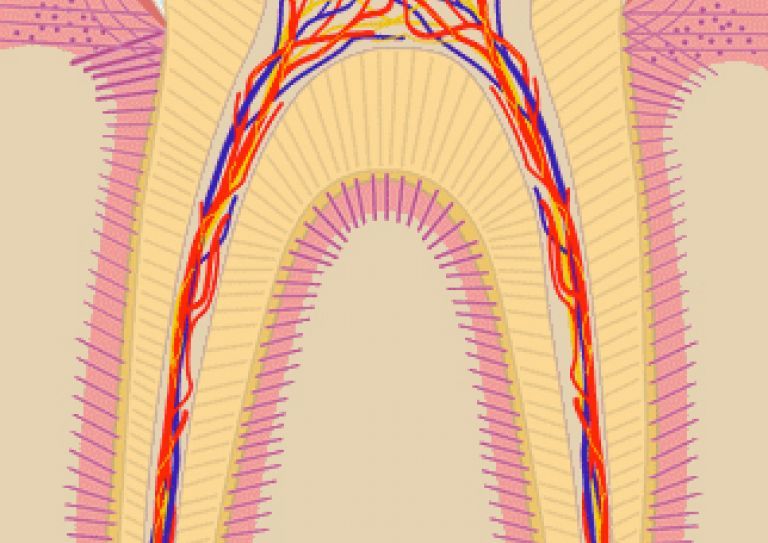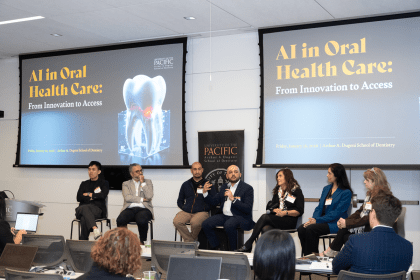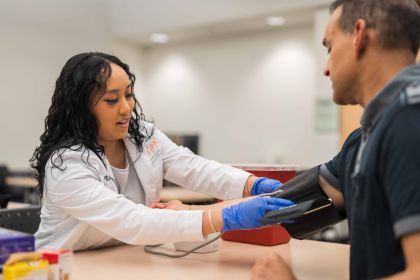Breadcrumb
Predicting the response of dental pulp to SARS-CoV-2 infection
What is it?
A study looking at the effects of COVID-19 infection on the dental pulp.
What problem does it aim to solve?
Pulpitis is usually thought to be caused by bacteria, but viruses can cause it too. The coronavirus responsible for the current COVID-19 pandemic, SARS-CoV-2, uses a receptor, ACE2, for entry into cells and a serine protease, TMPRSS2, for priming. The researchers hoped to answer two questions: how does the dental pulp respond to SARS-CoV2 infection, and how does ACE2 and TPMRSS2 expression change during SARS-CoV2 infection?
How does it work?
The research team was able to build on their previous study on gene expression in inflamed human pulp, which included sequenced data on 53,000 genes. They used this data to explore expression of ACE2 and TPMRSS2 in inflamed and normal human pulp. Then they used the data and methods described in a recent study on known interactions between SARS-CoV-2 and host tissues by other researchers to predict the genes which will be over- or under- expressed in the dental pulp in the presence of SARS-CoV-2.
What are the real-world implications?
“The study results suggest that the dental pulp is vulnerable to SARS-CoV-2 infection, and that the predicted underexpression of ACE2 during SARS-CoV-2 infection in the dental pulp may contribute to worse outcomes of pulpitis.”
What are the next steps?
This study suggests some possible effects from COVID-19 infection that should be tested in the future by extracting dental tissue samples from infected patients.
Source
Galicia, J.C., Guzzi, P.H., Giorgi, F.M. et al. Predicting the response of the dental pulp to SARS-CoV2 infection: a transcriptome-wide effect cross-analysis. Genes Immun (2020).
Authors
Johnah C. Galicia, Department of Endodontics, Arthur A. Dugoni School of Dentistry
Pietro H. Guzzi, Department of Surgical and Medical Sciences, Magna Graecia University
Federico M. Giorgi, Department of Pharmacy and Biotechnology, University of Bologna
Asma A. Khan, Department of Endodontics, School of Dentistry, University of Texas Health and Sciences Center






